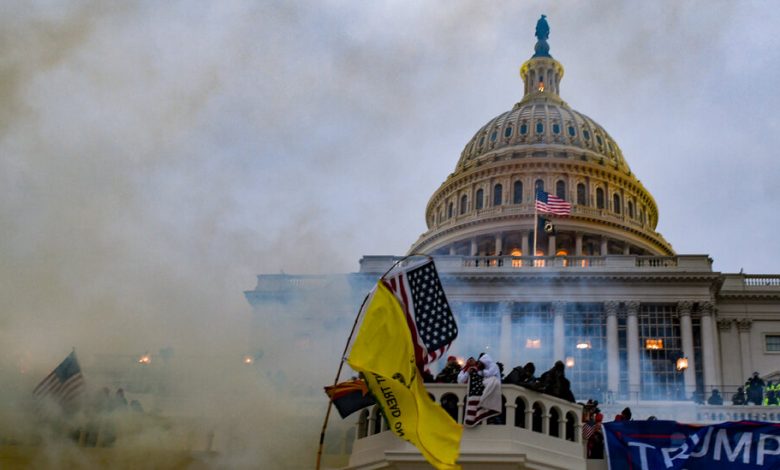Jan. 6 Obstruction Case at Supreme Court Could Help Trump and Many Others

At first blush, the case the Supreme Court will hear on Tuesday seems technical, requiring the justices to parse a decades-old statute mainly concerned with the destruction of business records.
But the case has the potential to knock out half of the federal charges against former President Donald J. Trump for plotting to subvert the 2020 election, entangle hundreds of Jan. 6 prosecutions and help adjudicate the very meaning of the attack on the Capitol.
The immediate question for the justices is whether a federal law aimed primarily at white-collar crime, the Sarbanes-Oxley Act of 2002, can be used to prosecute members of the mob who stormed the Capitol, including the defendant in the case, Joseph W. Fischer, a former Pennsylvania police officer. More than 300 people have been prosecuted under the law, which makes it a crime to obstruct an official proceeding.
The immediate purpose of the law, enacted in the wake of the collapse of Enron, fits uneasily with the prosecutions arising from the violent riot that forced a halt to the constitutionally required congressional count of electoral ballots. But its language is broad, and prosecutors say its plain terms cover Mr. Fischer’s conduct.
Mr. Trump is not involved in the case, but he could benefit from a ruling in Mr. Fischer’s favor. If the Supreme Court rules that what Mr. Fischer is accused of having done is not covered by the 2002 law, Mr. Trump will doubtless argue that the law does not apply to his actions either.
Even if he succeeds, though, he will still face two other charges not at issue in Mr. Fischer’s appeal: conspiracy to defraud the United States and conspiracy to interfere with constitutional rights.
